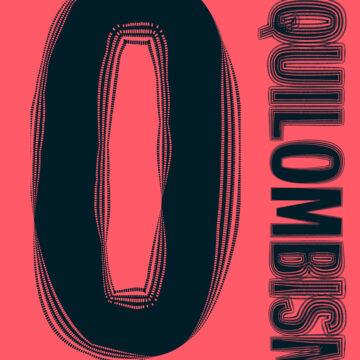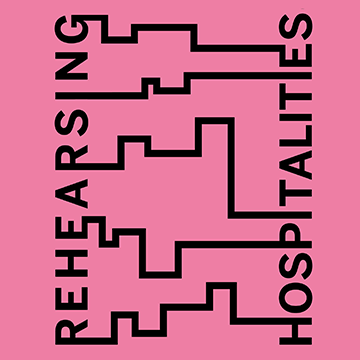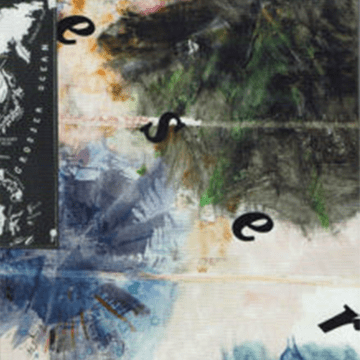The Forgive Us Our Trespasses / Vergib uns unsere Schuld Reader explores radical and emancipatory significations and fabulations of trespassing, turning towards practices that transgress and reshape the boundaries of, among other dimensions, currency, governance, religion, spirituality, language, and artificial intelligence.
Tag: reader
Vergib uns unsere Schuld / Forgive Us Our Trespasses – Reader (DE)
The Forgive Us Our Trespasses / Vergib uns unsere Schuld Reader explores radical and emancipatory significations and fabulations of trespassing, turning towards practices that transgress and reshape the boundaries of, among other dimensions, currency, governance, religion, spirituality, language, and artificial intelligence.
Ballet of the masses. On Football and Cartharsis / BOM Magazine
The BOM Magazine, the publication for the Ballet of the Masses project at Haus der Kulturen der Welt (HKW), focuses on rare perspectives on football as a field of both tension and relaxation.
Echoes of the Brother Countries Reader
The Echoes of the Brother Countries Reader embarks on a rigorous reappraisal of the historical exchanges between the German Democratic Republic (GDR) and its so-called Bruderländer (brother countries). Published on the occasion of the eponymous research and exhibition project at Haus der Kulturen der Welt (HKW), this reader considers the echo as a fulcrum to examine the resonant aesthetic, social, and political implications of an era from the perspectives of those who were deeply affected by the GDR’s state and labour policies, yet gravely overlooked in its histories.
Echos der Bruderländer Reader
Der Reader zum Projekt Echos der Bruderländer versucht eine Aufarbeitung des historischen Austauschs zwischen der Deutschen Demokratischen Republik (DDR) und ihren sogenannten ‚Bruderländern‘. Die Publikation, die anlässlich des gleichnamigen Forschungs- und Ausstellungsprojekts im Haus der Kulturen der Welt (HKW) erscheint, versteht den Begriff des Echos als Dreh- und Angelpunkt, um die ästhetischen, sozialen und politischen Implikationen einer Epoche aus der Perspektive derjenigen zu untersuchen, die von der Staats- und Arbeitspolitik der DDR zutiefst betroffen waren, aber in der Geschichte der DDR kaum wahrgenommen werden.
As though we hid the sun in a sea of stories / Als hätten wir die Sonne verscharrt im Meer der Geschichten
Accompanying the exhibition As Though We Hid the Sun in a Sea of Stories, this reader weaves together essays, conversations, and poetry that trace the multiplicity of worldviews, histories, and archives that have existed within an area of Central and Eastern Europe, Central and North Asia, and further beyond.
O Quilombismo Album
Beyond thinking with quilombismo as a metaphor, O Quilombismo: Of Resisting and Insisting. Of Flight as Fight. Of Other Democratic Egalitarian Political Philosophies. deliberated on the intellectual and political implications of a philosophy and ideology based on the quilombos, mapping the spaces that they have made and continue to make possible today. Featuring over 100 full colour images and installation views, the O Quilombismo Album is a visual record of these acts of opening again, a celebration of conviviality.
O Quilombismo Handbook
The O Quilombismo Handbook is an indispensable companion to the eponymous exhibition. It includes background information on and numerous images of all exhibited works, texts providing further insight into the practice of the participating artists, as well as floor plans and sketches of the exhibition spaces. Two introductory essays provide context for the philosophy of quilombismo and the conceptual framework of the exhibition.
O Quilombismo Handbuch
Das O Quilombismo Handbuch ist die unentbehrliche Begleitpublikation zur gleichnamigen Ausstellung. Darin finden sich Werkinformationen und Abbildungen aller gezeigten Arbeiten, vertiefende Informationen zu den beitragenden Künstler*innen sowie Lagepläne und Skizzen der Ausstellungsräume. Zwei einleitende Essays führen in die Philosophie des Quilombismo und das Konzept der Ausstellung ein.
O Quilombismo Reader (DE)
Der Reader zum Projekt O Quilombismo: Von Widerstand und Beharren. Von Flucht als Angriff. Von alternativen demokratisch-egalitären politischen Philosophien, wendet sich an Leser*innen mit Interesse an den konzeptionellen Hintergründen und den kuratorischen Linien der Ausstellung: Auflehnung, Befreiung, Spiritualität, Ekstase, neue kulturelle Formen und ästhetische Paradigmen, Interpretationen von Kollektivität und Quilombo als Queering.
O Quilombismo Reader (EN)
This reader, published on the occasion of the project O Quilombismo: Of Resisting and Insisting. Of Flight as Fight. Of Other Democratic Egalitarian Political Philosophies, brings the themes of the eponymous group exhibition to those interested in wider conceptual explorations around its multifaceted curatorial threads: insurgence, resistance, liberation, spirituality, ecstasy, new cultural forms and aesthetic paradigms, quilombo as queering, and the reimagination of collectivity.
Force Times Distance. On Labour
This reader is a culmination of direct and tangential deliberations on labour. Notions of labour appreciated across geographies and mediums. Newly commissioned textual manifestations in a multilogue with historical positions. The reader could be perceived as a negotiation of positions, as the strive towards utterances, towards becoming.
Rehearsing Hospitalities Companion 4
Rehearsing Hospitalities Companion 4 asks what the possibilities and limitations of hospitality are. Should we instead be turning towards “rehearsing” redistribution?
This publication points towards the vast ways our lives and worlds could be organised through less hierarchical, extractive, and exploitative practices: with more love afforded to ourselves, one another, and our more-than-human kin.
Rehearsing Hospitalities Companion 3
Rehearsing Hospitalities Companion 3 is the third in a series of readers published by Frame Contemporary Art Finland and Archive Books, which accompany Frame’s five-year public programme Rehearsing Hospitalities. The 2021 edition looks into questions of hospitality safety, security and care.
Eser
Eser is a comprehensive publication on Judith Raum’s works, installations and lecture performance texts from 2011 to 2014. It is also a theoretical reader and material collection on the semi-colonial advance of German entrepreneurs and bankers into the Ottoman Empire before World War I in connection with the construction of the Anatolian Railway. In this frame, the logic of capitalism and geopolitical interests connected the engineers’ tasks with less obvious efforts: to get a hold of Anatolian agriculture, archaeology and the working conditions in the country. Judith Raum’s work suggests that gestures and rhetoric of power and domination are the consequences of an economic principle that did not end with the colonial era and in fact persist today. Her works and texts take her research on site and in archives as a starting point, they exhibit an autonomous aesthetic dimension, however, and as such suggest an alternative approach to ‘artistic research’.













